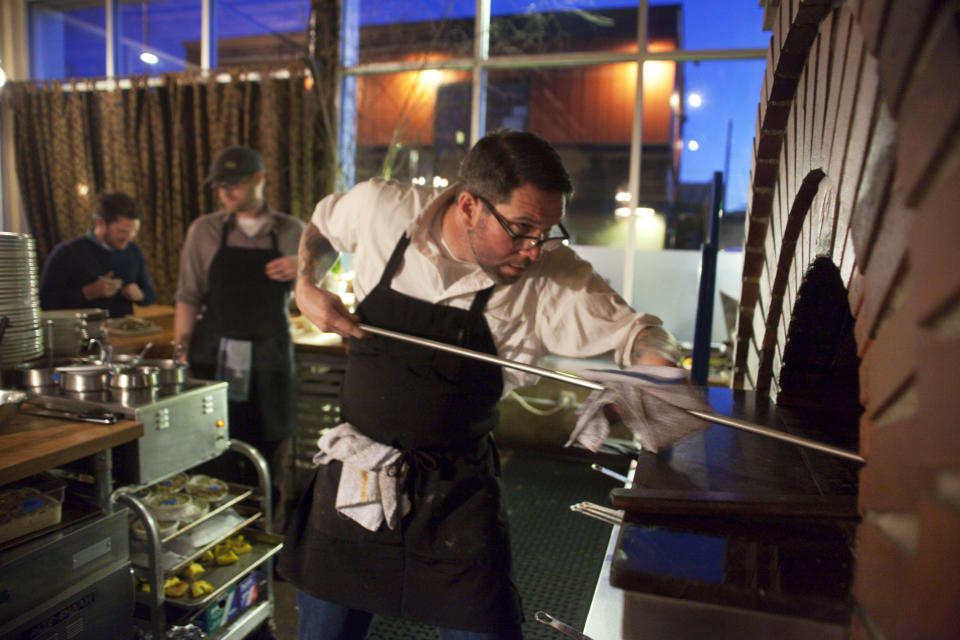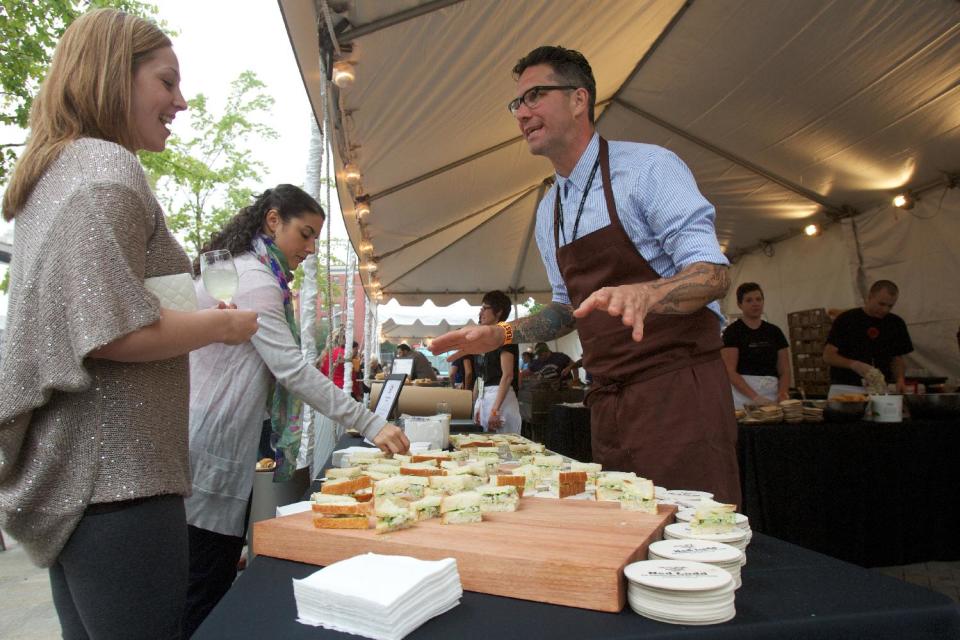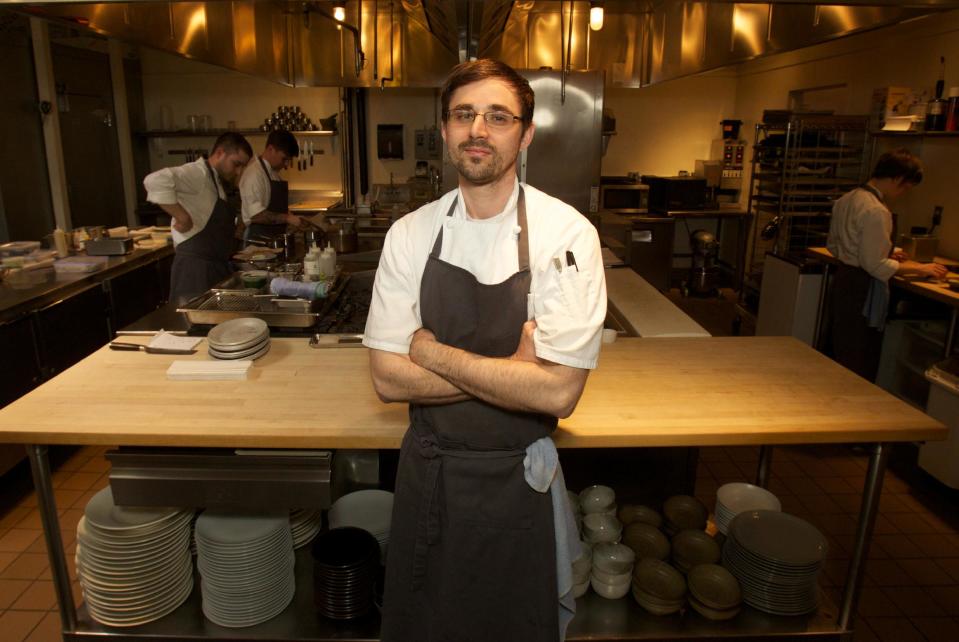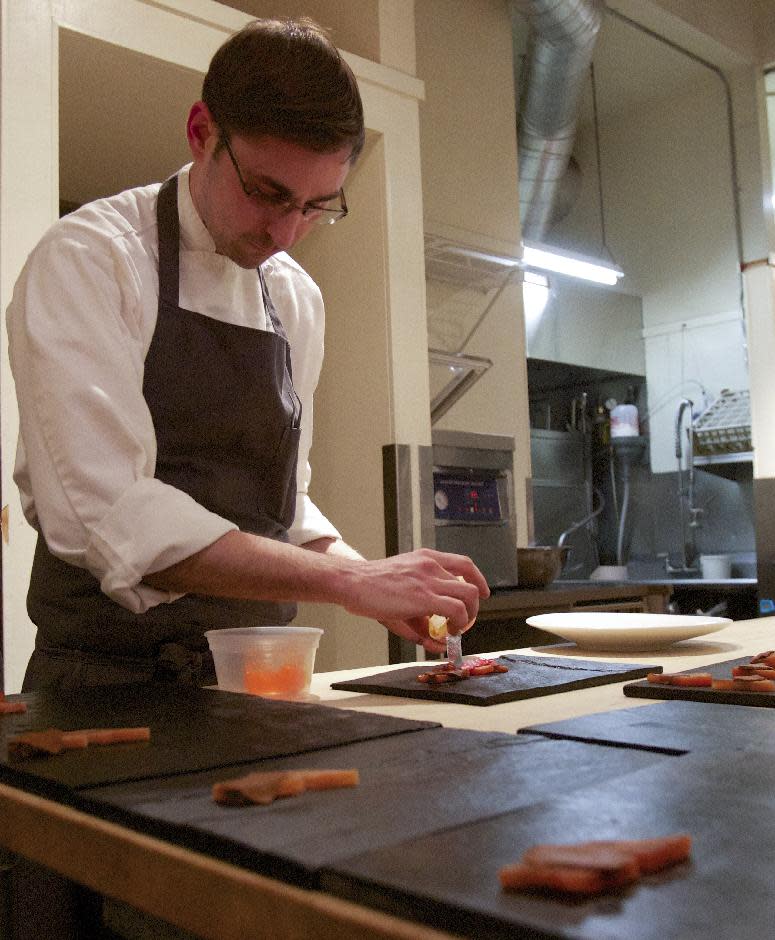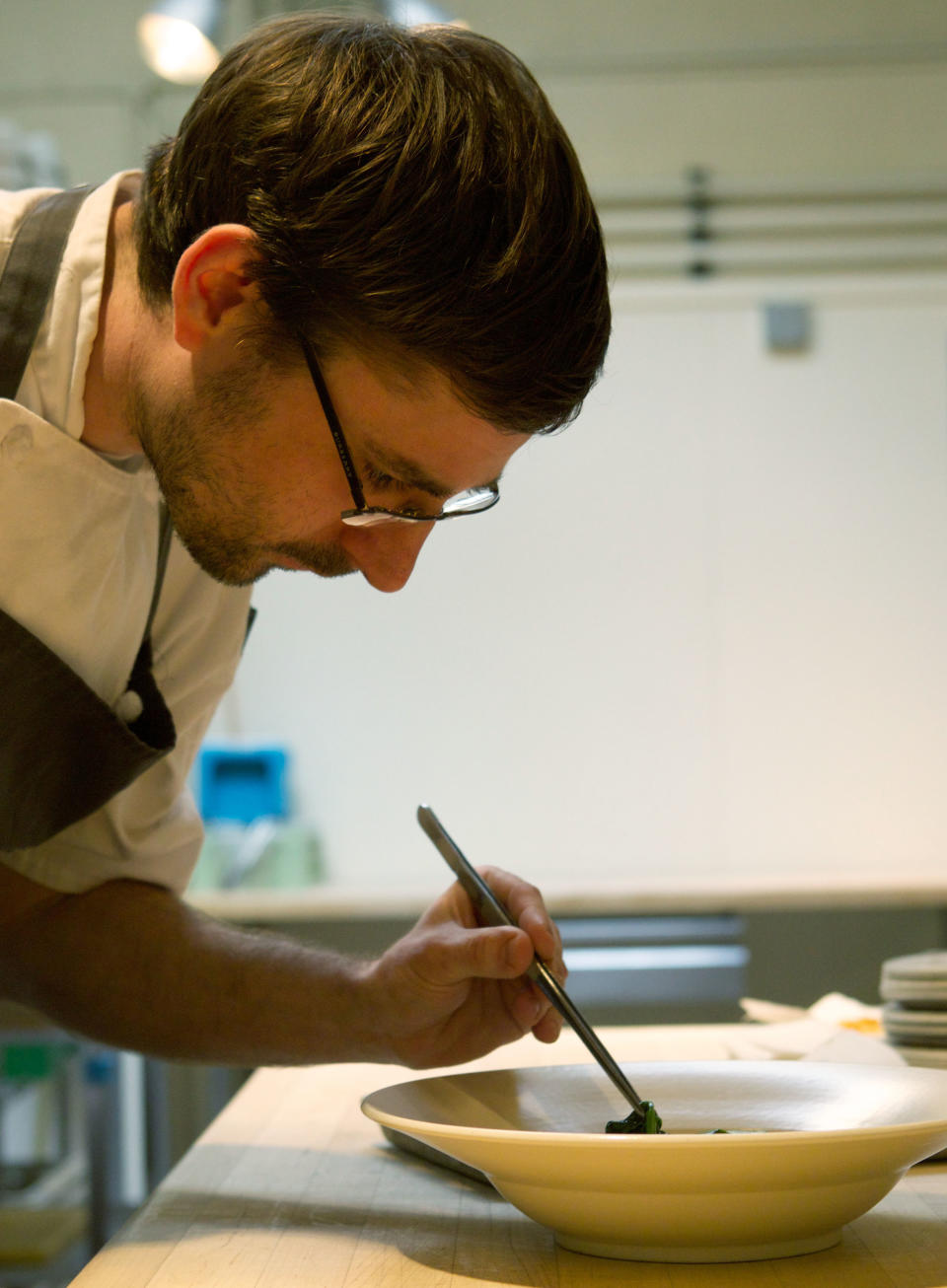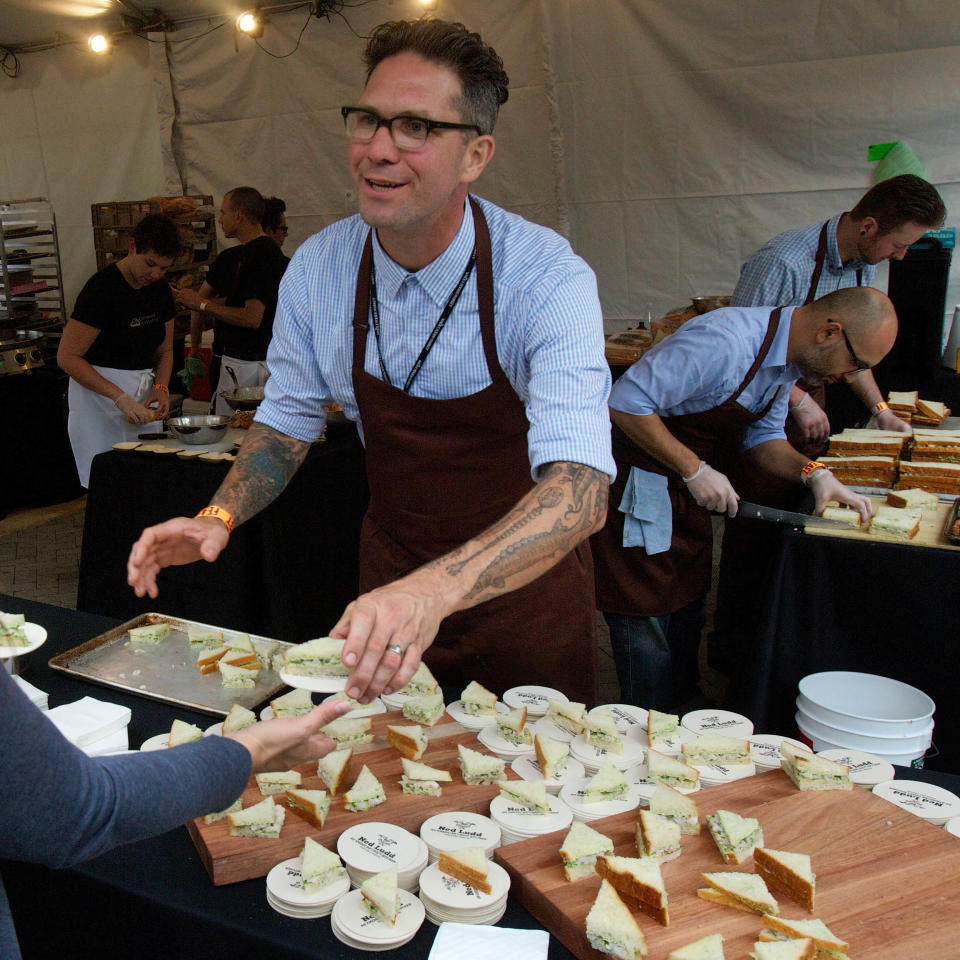Gels, foams, spheres: Modernism comes to Portland
PORTLAND, Ore. (AP) — Far from the expectant gaze of major restaurant critics and the accompanying pressure to produce the Next Big Thing, this little-big city offers chefs a unique opportunity — the chance to experiment with less fear of scathing reviews, empty tables and For Sale signs after an adventurous flop.
Innovation is rewarded here, and maybe that's called for in a region that's looking beyond the novelty of farm-to-table, toward something new. But what?
A dozen chefs from Los Angeles to British Columbia recently came to Portland to wrestle with that idea. For people who hate labels, here's one they particularly dislike: "modernist cuisine," that murky term that's come to mean vacuum sealing, gel layering, foams, globules, centigrade measurements and one famous 2,400-page, $625 cookbook.
It is, however, the one that best describes the culinary wave that has crested over big-city restaurants. Now even humble Portland, nearly a decade on, is finding its own way to express it.
Chef Gregory Gourdet — who organized the Chefs Week PDX event — says the catchall of "modernism" in the Pacific Northwest can vary by the chef. "Portland is still not modern-technique heavy," he says. "It keeps things very approachable, but it's applying some of the tools (of modernism)."
The romantic vision of Portland restaurant kitchens — loud and tattooed and full of open flames — is fusing with this new notion, combining the region's reliance for that which is fresh and nearby with the inevitable encroachment of high-powered kitchen toys. It's a marriage that was on display with yuzu mousse riding alongside a shard of bigeye tuna and Oregon black truffle at one of the chefs' dinners.
"We're kind of the Wild West," said Justin Woodward of Portland's Castagna. "We don't have a Michelin Guide. We don't have The New York Times breathing down our neck. We can basically do whatever we want."
That attitude led to shelves full of awards, a reputation for risk and dishes like smoked rabbit pie with mustard ice cream. But it also created a bit of an archetype for what Portland cuisine should be, dangerous to a city that's food scene is built on invention.
"A lot of menus look the same these days," said Jason French of the Portland wood-fired kitchen Ned Ludd. "Everyone has charcuterie. Everyone's dabbling in some aspect of molecular gastronomy."
The Pacific Northwest still values its comfort food. Avant-garde drizzles and dabs haven't taken root here, and despite Portland's reputation for culinary innovation, most of its residents — the Tuesday-nighters, not the tourists — will take salmon on a plank over piquillo pepper spheres.
So what is next? Consider the carrot.
Justin Wills of Restaurant Beck in coastal Depoe Bay likes its raw flavor. Not the mushy boiled version or the crunchy roasted one, just raw. And he doesn't want to serve a carrot or carrot shavings or, heaven forbid, an orangey pool of carrot juice.
This is where he abides that edge of modernist cuisine: a raw carrot, juiced and combined with agar to form carrot gel, presenting all the flavor and none of the textural problems. It is, Wills says, modernism with a purpose.
And those are the seeds planted by events like Chefs Week PDX, a brief infusion of inspiration in a state where serving spring peas in March gets eye-rolls from chefs (who know that those greens don't appear locally until later in the year).
If Portland's cuisine is adapting, perhaps it comes with some dissidence from dogmatic adherence to terms like "locavore." French learned that a few years ago, when he proposed a winter dinner that would serve only ingredients found within 100 miles of Portland, eschewing California produce and anything that arrived on dry ice from the East Coast.
The result was a fiasco. They were left with just carrots, parsnips and kale; even the winter chard had a bad year and was off the menu. The organizers ultimately scrapped the idea, and French said the experience underscored for him the necessity of adaptation and flexibility. He and his culinary kin will need it.
The food scene in Portland finds itself nearing a crossroad. The city was largely shut out of this year's national James Beard Awards, and in late February, pioneering farm-to-table restaurant Wildwood closed after 20 years.
Among the elegiac lamentations for its two-decade run, reviewers and patrons wondered whether it changed too much after the 2007 departure of its founder or perhaps not enough — among the items on its final published menu were brick oven roasted mussels, Oregon-caught petrale sole and lamb shoulder confit.
Staples, all, from places nearby and reflective of the environment in which they were served. But perhaps that's not enough anymore. And what comes next may be starting to take shape.
___
Reach reporter Nigel Duara on Twitter at http://www.twitter.com/nigelduara
